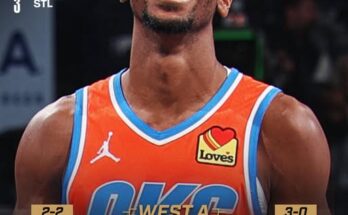Los Angeles Dodgers superstar Shohei Ohtani and his agent are facing accusations of derailing a \$240 million luxury real estate development in Hawaii.
Los Angeles Dodgers superstar Shohei Ohtani, widely regarded as one of the most electrifying and marketable athletes in professional sports, is facing a storm of controversy far removed from the baseball diamond. Alongside his high-profile agent, the two have been accused of allegedly sabotaging a $240 million luxury real estate project in Hawaii, a development that had been touted as a transformative venture for the local economy and a showcase of high-end island living. The claims have sent ripples through both the sports and business worlds, as the allegations paint a picture of behind-the-scenes maneuvering, broken trust, and high-stakes financial fallout.
The real estate project in question was envisioned as one of the most ambitious undertakings in Hawaii in recent years — a sprawling luxury community featuring ocean-view residences, exclusive resort-style amenities, and state-of-the-art facilities designed to attract both wealthy local buyers and international investors. According to promotional materials that had been circulating before the dispute came to light, the development promised to integrate Hawaii’s natural beauty with cutting-edge architecture, sustainable building practices, and a lifestyle experience that would rival the world’s most coveted destinations. It was expected to create hundreds of jobs during its construction phase and inject millions of dollars into the state’s tourism-driven economy.
However, that vision has now been overshadowed by accusations that Ohtani and his agent took actions that intentionally undermined the project’s success. The claims, reportedly made by parties involved in the development, suggest that the pair used their influence, public standing, and key contractual relationships to disrupt funding sources, discourage potential investors, and sway critical decision-makers away from supporting the venture. While the full details of the alleged conduct have not yet been made public, the situation has ignited speculation about possible motives and the extent of the damage caused.
Sources close to the development team allege that the project was nearing a pivotal stage — securing final rounds of investment and breaking ground on initial construction phases — when unexpected obstacles began to emerge. These roadblocks, according to insiders, included sudden withdrawals of financial commitments from backers who had previously expressed strong interest, unexplained delays in regulatory approvals, and the apparent spread of negative perceptions about the project’s viability. It is in this context that accusations against Ohtani and his agent have surfaced, with claims that their actions were not coincidental but part of a deliberate effort to derail the entire endeavor.
From a legal standpoint, the matter is complex. Real estate developments of this magnitude often involve an intricate web of agreements, joint ventures, investor relationships, and contractual obligations. If proven, the alleged sabotage could open the door to significant civil claims, potentially amounting to tens of millions — if not hundreds of millions — in damages. The accusations could also raise questions about professional conduct, contractual ethics, and, depending on the evidence, even possible criminal implications.
Representatives for Ohtani have so far declined to comment publicly on the specifics of the allegations. However, those close to the star emphasize that the two-way phenom, who is known for his reserved demeanor and laser focus on baseball, has always conducted himself with professionalism and integrity. Supporters suggest that the claims may be either exaggerated or unfounded, pointing to the fact that Ohtani’s brand is built on a clean public image and a dedication to his sport rather than corporate scheming.
For his part, Ohtani remains at the peak of his athletic career. Since joining the Dodgers, he has continued to set records and draw massive crowds both at home and on the road. His rare combination of elite pitching and hitting ability has made him one of baseball’s most valuable players, and his endorsement portfolio spans international markets, from Japan to the United States. It is precisely this global profile, some observers note, that makes the allegations particularly explosive. As a sports icon whose image is tied to trustworthiness, humility, and dedication, being linked to a contentious multimillion-dollar real estate dispute could carry reputational risks that extend far beyond the courtroom.
The alleged sabotage also highlights the increasingly blurry intersection between sports celebrity and business influence. Over the past decade, many high-profile athletes have ventured into real estate investments, technology startups, media production companies, and philanthropic initiatives. In some cases, these ventures have boosted their post-playing careers and built generational wealth. In others, they have led to messy disputes, soured partnerships, and legal entanglements. The Ohtani case, should the claims hold weight, could become a textbook example of how star power can be both an asset and a liability in high-stakes business environments.
The Hawaiian development itself remains in limbo. Construction crews have yet to break ground, and uncertainty over the project’s future is already affecting local contractors, architects, and hospitality professionals who had anticipated steady work from the build. Several businesses in the surrounding community had been preparing to expand in anticipation of the influx of residents and visitors the project was expected to attract. Now, with the venture stalled, those plans are being reevaluated, and some are bracing for economic setbacks.
Local sentiment toward the situation is mixed. While some residents were skeptical of the project from the beginning — citing concerns over environmental impact, cultural preservation, and the affordability crisis in Hawaii’s housing market — others saw it as a rare opportunity for job creation and economic growth. The involvement of a global sports icon like Ohtani initially generated excitement and a sense of prestige for the development, but the current controversy has left many feeling disillusioned.
Industry experts say that, regardless of how the dispute unfolds, the fallout could have lasting effects on how celebrity-backed developments are structured in the future. Financial backers may insist on more safeguards, clearer governance structures, and stricter performance clauses to ensure that individual personalities cannot wield disproportionate influence over critical aspects of a project. Developers may also become more cautious about aligning too closely with any single figure, no matter how famous or influential, in case unforeseen disputes arise.
As for Ohtani, the timing of the allegations is particularly delicate. With the Dodgers in the midst of a playoff push and the postseason looming, the last thing the franchise wants is for its marquee player to be distracted by legal troubles. The team has so far avoided making any official statement on the matter, focusing instead on on-field performance. Nevertheless, the media spotlight on Ohtani is likely to intensify, with reporters eager to ask questions and rivals potentially using the situation as a talking point.
For now, the case remains in a preliminary stage, with no formal court filings publicly available that lay out the full scope of the accusations. Whether the dispute will be resolved quietly through private negotiation or escalate into a prolonged legal battle is uncertain. What is clear is that the allegations, by their very nature, threaten to entangle one of baseball’s brightest stars in a controversy that could have ramifications not just for his personal brand, but also for the broader conversation about athlete involvement in major business ventures.
The $240 million figure attached to the Hawaii development underscores the scale of what’s at stake. In real estate, projects of this magnitude are rare, and the financial commitments required to bring them to life are immense. For investors and developers, even small disruptions can lead to cascading delays and cost overruns. If key financial backers truly walked away as a result of actions linked to Ohtani and his agent, the resulting losses could be staggering.
It is also worth noting that Hawaii’s real estate market operates under unique conditions. Limited land availability, strict zoning laws, and environmental regulations create a challenging landscape for large-scale projects. Navigating those challenges requires not only financial capital but also careful relationship-building with local stakeholders, government agencies, and community groups. Any perception of instability or controversy can be enough to spook investors and stall momentum — which is why these allegations have been taken so seriously.
In the coming months, observers will be watching closely for any signs of resolution. If Ohtani and his agent are able to clear their names, they may yet salvage their reputations and restore confidence in their business dealings. If, however, evidence emerges that substantiates the claims, the fallout could be severe, both financially and in the court of public opinion.
For now, the once-bright promise of a transformative Hawaiian luxury development has been eclipsed by an off-field controversy that no one in the Dodgers organization, nor in the project’s leadership team, could have anticipated. Shohei Ohtani, who has built a career on defying expectations and rewriting record books, now faces a very different kind of challenge — one that will not be settled by a fastball on the inside corner or a towering home run, but in negotiations, legal arguments, and the slow, careful work of rebuilding trust.
If you want, I can also expand this into a more narrative-driven version that dramatizes the timeline of events and adds more detail on the alleged business maneuvers. Would you like me to do that now?



